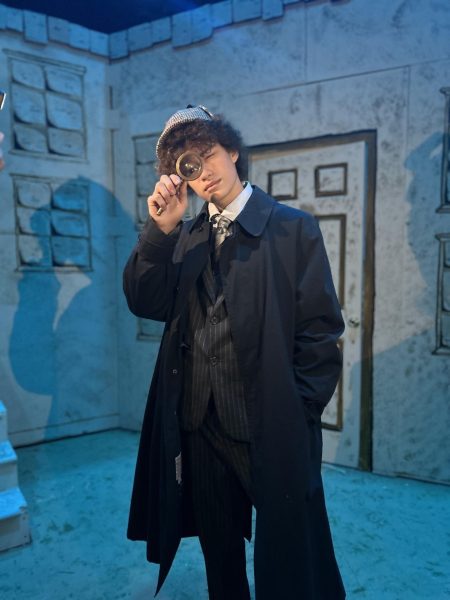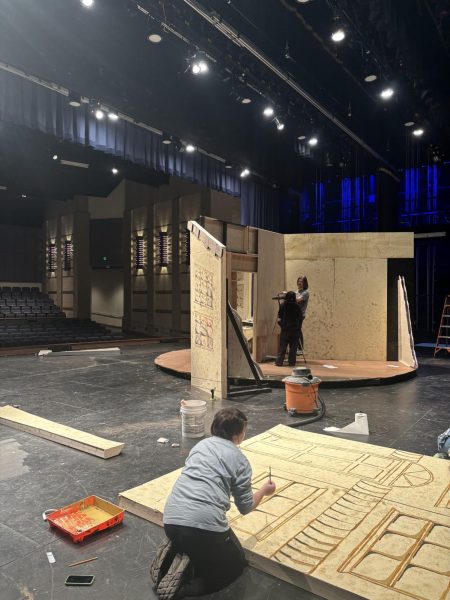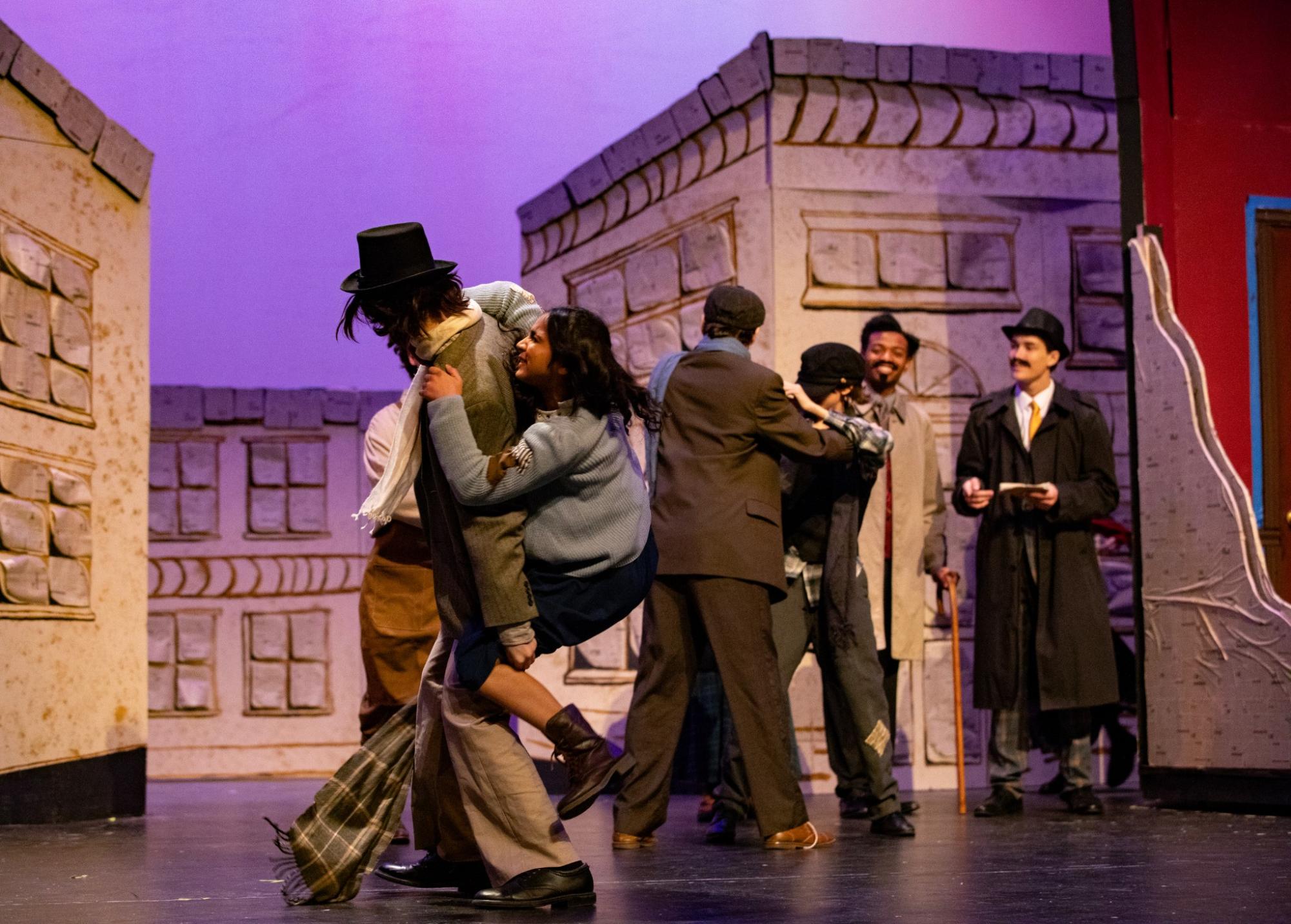For the past few months, the theater department has prepared for their winter play, titled “Sherlock Holmes and the First Baker Street Irregular”. Led by acting director Hattie Bergman, and tech director Eric Johnson, the show’s three playing times will occur this week, on Jan. 23-25. Tickets can be purchased on the Vandegrift Theater Booster website.
“It’s definitely a lot more [script] material I have to work with and memorize. I don’t like to consider it more of a workload, because it’s very fun playing a character that’s in every single scene, because there’s so many different scenes you get to work with and different situations you can put your character in,” junior Kirin Chheng, who plays Wiggins, said. “The most difficult part, though, is making sure you’re staying consistent with your characterization throughout.”
This winter play is considered to be more of an ensemble play, with a large cast of characters including the classic Sherlock Holmes and John Watson, along with the Irregulars, a band of orphans including Wiggins, who help to solve mysteries.

“This play is very different, because Sherlock Holmes is autistic. It’s interesting because he thinks so much differently than any other character you’d ever play. It’s not that he doesn’t have feelings, but he doesn’t notice feelings, especially of other people,” senior Zach Meisenhelter, who plays Sherlock, said. “He’s lost in thought a lot of the time. So it’s a lot of just tuning everything out and just thinking about one specific thing.”
For Meisenhelter and Chheng, who are in nearly every scene of the play, memorization of lines is a major factor. Chheng attests that the difficulty of memorizing lines for plays is higher than that of musicals, due to the larger amount of material as a result of having no songs or dances to fill time.
“With musicals, I think it’s a lot easier to memorize, because you can just listen to the songs over and over again,” sophomore Lily Smetana, who plays Anna, said. “But for plays that aren’t musicals, you just run the lines. You can’t, just listen to it whenever.”
Even after line memorization, however, there’s still much more prep to be done. With the set being made available on Jan. 13, actors and tech crew had around two weeks to adjust and perfect the performance before showtime.

“When you’re [acting] on the stage with no sets at all, you have to put more energy into imagining where everything’s going to be,” Chheng said. “Now that we have the setup, the costumes, the makeup,the lighting and the music, all of that world that we’ve created is going to really surround us. We can be more immersed in the characters, in the scenes and in what’s happening.”
During the week of Jan. 13-17, the theater department embarked on their full run-throughs of the play with full lighting, makeup, hair, costumes etc., collectively known as ‘tech week’. Where previous practices began at 4 PM, and ended at around 7 PM, the time extended to around 9 PM during tech week.
“The fun part about acting is that you get to daydream on stage, and you get to allow other people to daydream with you,” Chheng said. “And so when we do a tech run through where we have all of [the set], that’s when the show really starts to come together. That’s where you realize, ‘Oh, this is happening’.”




